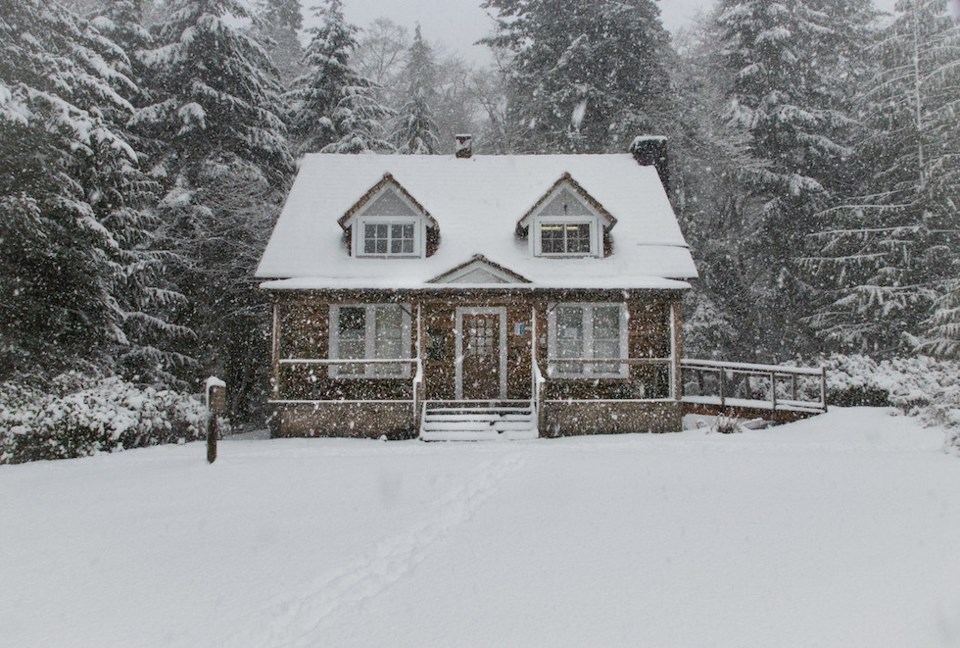Timing the housing market is more complicated than it sounds. From opinions about the best time of year for buyers or seller and arguments about the traditional spring rush to speculation about rising interest rates and tougher mortgage regulations, there are cases to be made about the best ways to navigate the real estate landscape.
Through all of the noise surrounding real estate, one thing is clear; we have a very interesting and ever-changing housing market.
So, what can you expect from the Guelph real estate market leading into the New Year? Here are some insights to consider as we head toward 2019.
Winter’s market isn’t as cold as you think
Traditionally, the Guelph real estate market sees a slight uptick in the number of sales in October, which could be due to children being in school and people wanting to settle into their new homes before Christmas. Sales in October 2018 were no exception, with over 180 houses sold during the month and 20% of them selling over the original asking price.
From this point on, November, December, January and February are slower months for sales. But is that a bad thing? Not necessarily. Consider it from the traditional business perspective of supply and demand:
From a seller’s perspective:
There are fewer houses on the market during this time period and so the houses that are on the market will receive more attention. Buyers have less choice than they would have in the spring market and in fact, over the past 4 years, houses listed between November- February sell at an average of over 99.3% of the original asking price.
Interestingly, with the exception of 2017, average home prices in winter have been higher than spring prices.
From a buyer’s perspective:
Buyers can benefit from a slower sales cycle. With fewer buyers in the market, those who are serious about buying a home are able to negotiate a better deal whether it be on price, suitable conditions or other variables. Since 2015, the average time period a house is on the market in Guelph is 23 days. But over the same timeframe, houses that are sold in in the winter months have been closer to 30 days- a full week longer. Statistically, as a buyer, you’re more likely to find a better deal in the months of July and August than you are in the winter!
So, winter months have fewer houses available on the market, but this is balanced out with fewer buyers making deals.
Will the ‘spring rush’ live up to its hype?
Over the past four years, April, May and June have made up almost one-third of annual home sales. Will this continue into 2019? Let’s look at some of the possible influences that could impact the momentum of the spring rush.
One unique, historical contributor specific to the momentum of Guelph real estate has been the influx of buyers from the Greater Toronto area (GTA). In the extreme seller’s market of 2017, GTA Realtors® (presumably representing GTA buyers) represented over 30% of the Guelph buyers! This number cooled a bit in 2018, but still significant with 1 in 5 Guelph homes being purchased by an out of town buyer each and every month. These GTA buyers are replacing many Guelph sellers moving to less expensive markets such as Kitchener, Waterloo, Cambridge and Fergus.
Moving toward spring 2019 it’s important to be mindful of rising interest rates. On October 24, 2018, the Government of Canada increased the benchmark interest rate again to 1.75% which is the fifth increase since the summer of 2017. The Government is now signalling at least another two increases in 2019. These increases are starting to have implications on both buyers and sellers, including the first-time buyer. As reported in the fall Canada Mortgage and Housing
Corporation (CMHC) Housing Report, 85% of first-time buyers are buying houses at the top range of their qualifications, with little wiggle room.
For those of you that knew someone with a mortgage in the early 1980’s, you’ve likely heard the legendary stories of 25% interest rates that left people foreclosing and walking from their homes. Although rates are nowhere near this in 2018, some are concerned that the rapid rise in rates could lead to similar market dynamics of the late 1980’s- early 1990’s, where a spectacular rise in home prices in the late 80’s made way to a large crash in the early 90’s.
Final thoughts
As you can see, trying to time the Guelph housing market is not as easy as it seems. There are so many market dynamics that play into the decision to buy or sell a home. A spring market is no guarantee of higher prices for sellers. And for buyers, purchasing a home in the winter months is no guarantee of a discounted price.
Real estate is a long-term investment and whether you’re buying or selling, you should always get the relevant facts from your Realtor®.
Ryan Waller is a Sales Representative at Home Group Realty. He can be reached at (519) 546-3390 or email [email protected]. More information at https://bethandryan.ca/
 Photography courtesy of Sarah Miller, 2312 Photography. For more information please email [email protected]
Photography courtesy of Sarah Miller, 2312 Photography. For more information please email [email protected]
